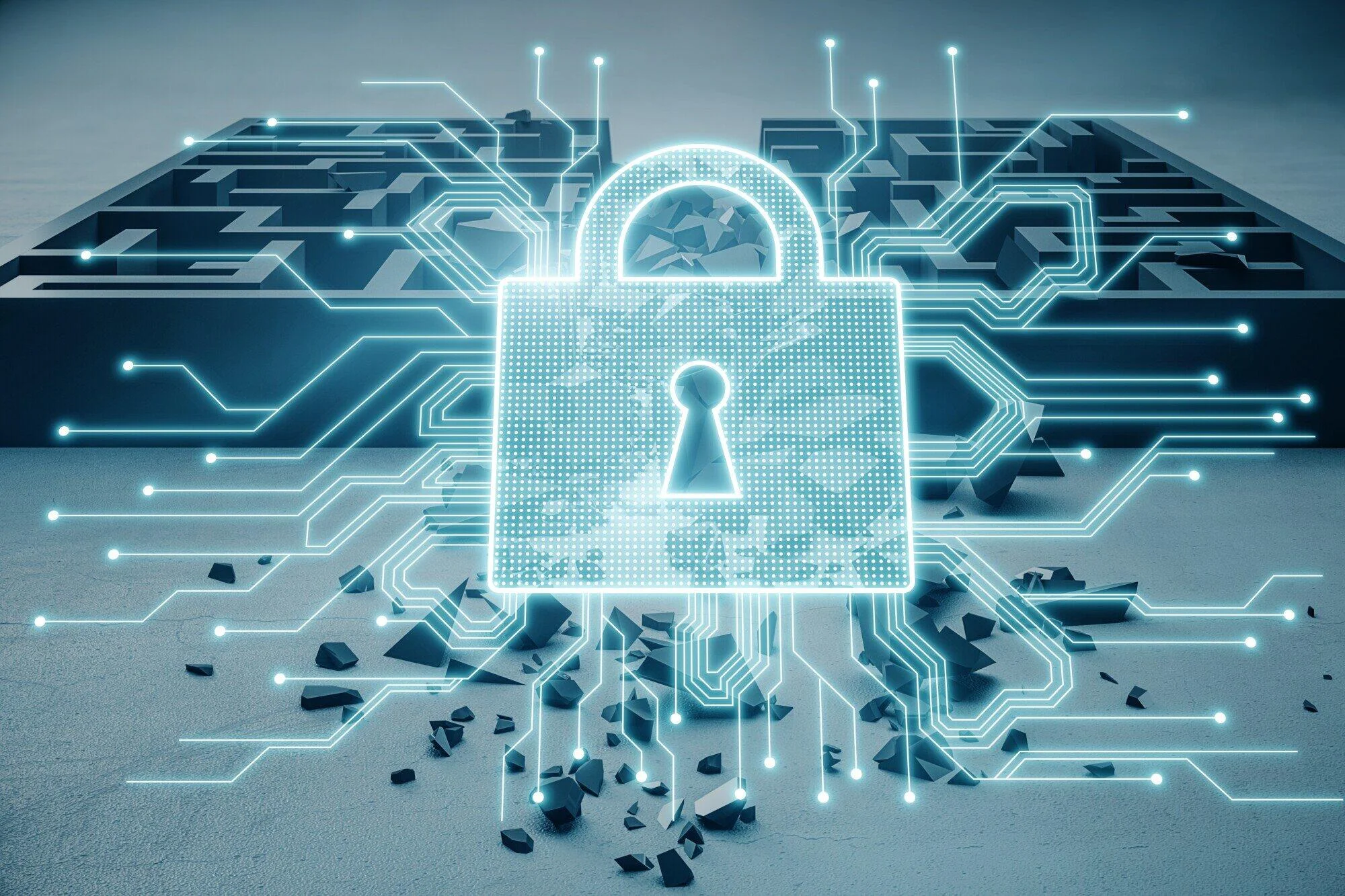Safeguarding the Digital World: The Vital Importance of Defensive Cyber Operations Facilities
Are we truly safe online? In today’s digital age, cyber threats are everywhere. They lurk in every corner of the internet. Even hackers nowadays are getting smarter.
This is the reason why data breaches happen daily. But how can we defend ourselves? The answer lies in defensive cyber operations facilities.
These are the digital fortresses that protect us from cyber-attacks. Join us as we explore why these facilities are vital in protecting the digital world.
Ready to learn more? Let’s explore!
Preventing Data Breaches
Preventing data breaches is crucial in today’s interconnected world. Cybersecurity infrastructure plays a significant role in this fight. They can detect and respond to potential attacks before they happen.
These facilities use advanced technologies such as:
Firewalls
Firewalls are barriers between trusted internal networks and untrusted external ones. They control traffic based on following:
- security rules
- filtering out malicious activity
- blocking unauthorized access to sensitive information
Intrusion Detection Systems (IDS)
An IDS is a system that monitors network traffic for suspicious activity. It can quickly identify unauthorized access attempts. It also alerts cybersecurity professionals in real-time. They are also essential in detecting malware attacks.
Encrypting Data
Encrypting data converts plain text into a code to prevent unauthorized access. Defensive cyber operations use encryption for information assurance, protecting sensitive details from interception.
Enhancing National Security
A major part of enhancing national security is cyber incident response. This involves swiftly reacting to breaches and neutralizing threats. Defensive operations facilities have teams dedicated to this response.
These teams work 24/7 to identify and contain cyber attacks. They even collaborate with law enforcement and intelligence agencies. This ensures a coordinated approach to national security.
Another component is threat intelligence. DCO gathers and analyzes data on emerging threats. They share this intelligence with other agencies and private sectors.
Overall, these facilities are not just about preventing data breaches. They are also about ensuring the nation’s safety from cyber threats. This makes their role more critical than ever.
Protecting Personal Information
With the rise of online transactions, personal information is more vulnerable than ever. DCO facilities employ strict security measures to safeguard sensitive information such as:
- passwords
- credit card numbers
- social security numbers
They assess vulnerabilities and run penetration tests to fix system weaknesses. Additionally, they provide:
- threat intelligence analysis
- online safety education
- resources for reporting suspicious activity
These efforts help protect our personal information and ensure online safety. Plus, they give us peace of mind when sharing sensitive data online.
Ensuring Business Continuity
Business continuity means keeping operations running during a cyber attack. DCO facilities ensure this in several ways.
Establishing Robust Disaster Recovery Plans
Robust disaster recovery plans are essential for business continuity. They outline clear steps to recover data after a breach. These plans ensure that operations resume quickly.
Conducting Frequent Backups
Frequent backups are vital for data protection. They guarantee that all essential information is regularly saved. This allows businesses to quickly restore data after an attack.
Implementing Redundancy
Redundancy involves duplicating critical systems and data. This ensures there is a backup in case of failure. Plus, it minimizes downtime and establishes continuous operations.
Continuous Network Security Monitoring
Continuous monitoring is crucial for detecting threats in real time. It involves keeping constant watch over network activities. This helps maintain vigilance and quickly address any anomalies.
Conducting Regular Training
Regular training keeps employees updated on the latest threats. It enhances their cybersecurity awareness. Frequent training sessions ensure quick and accurate responses to incidents.
Mitigating Financial Losses
Cyber attacks can result in large financial damage. This includes costs associated with data breaches, downtime, and reputational harm. DCO plays a big role in reducing these impacts.
Real-Time Threat Mitigation
These facilities are equipped to neutralize threats in real time. This reduces potential financial damage and minimizes losses.
Cost-Effective Solutions
Investing in strong defenses is cheaper than dealing with an attack’s aftermath. Preventive measures save businesses from hefty fines and recovery expenses.
Plus, they ensure business continuity and avoid loss of revenue.
Proactive Risk Management
Continuous monitoring and vulnerability assessments allow for early threat detection. This proactive approach reduces the likelihood and severity of attacks. Moreover, it also helps save financial resources by preventing costly damage.
Building Compliance
DCO facilities ensure adherence to regulatory standards. They also audit systems to maintain compliance. This helps prevent financial penalties for non-compliance.
Insuring Against Cyber Threats
Facilities with advanced technologies like BDOC often get better insurance rates. They provide evidence of robust security measures, which can lower premiums.
Strengthening Cyber Resilience
In today’s digital world, cyber threats are evolving. DCO facilities enhance cyber resilience and adapt to these evolving threats.
Ongoing Enhancement
DCO facilities are improving their security measures. They regularly review and update:
- protocols
- technologies
- training programs
Not only that! They also put in place feedback from past incidents to enhance their defense.
Conducting Post-Incident Analysis
After an attack, DCO facilities conduct thorough post-incident analysis. This helps identify weaknesses and improve future response strategies.
Collaboration with Other Entities
As mentioned earlier, these facilities work with other agencies and private sectors. This collaboration provides valuable insights into emerging threats and strengthens cyber resilience.
Promoting Trust in Digital Systems
In today’s digital world, trust in technology is essential. DCO facilities promote this trust by:
Providing Secure Online Transactions
With the increase in online transactions, secure payment systems are crucial. DCO ensures the protection of sensitive data. It also provides secure platforms for digital transactions.
Ensuring Data Privacy
DCO facilities uphold strict confidentiality measures to protect personal information. This promotes trust between businesses and customers.
Building Resilient Systems
Through continuous monitoring, DCO helps build resilient systems that can withstand attacks. This instills confidence in consumers and organizations using these systems.
Supporting Law Enforcement Efforts
DCO facilities work with law enforcement to combat cybercrime. They provide valuable intelligence and assist in investigations.
This collaboration helps bring perpetrators to justice and prevent future attacks. It also strengthens the fight against cybercrime. With this, we can say that DCO facilities are the backbone of cybersecurity.
Safeguarding the Digital World with Defensive Cyber Operations
In a world where digital threats are ever-present, staying protected is essential. Defensive cyber operations facilities are essential in this mission. They ensure our digital safety, national security, and business continuity.
Your role in this is crucial too. So stay informed and practice good cybersecurity habits today! Together, we can build a safer online environment.
Did you find this article helpful? Check out the rest of our blog now!
For Get More Information
- The Ultimate Guide to Choosing the Best Protein Bars for Women
- Exploring the Key Differences Between IT 24/7 Support and Consulting
- 4 Tips for Finding the Best 2 Bedroom Rental With Your College Bestie
- Uncovering the Best Cigars for Every Aficionado’s Humidor
- The Best Low-Budget High Rollers Casino Destinations for a Thrilling Experience
- Why Demat Account is Necessary in 2024?
- Symbolism in ‘Sadak in Search of Oblivion’
- Say Goodbye to Back Pain With Active Sitting Chairs and How They Can Help
- How General and Cosmetic Dentistry Can Boost Your Confidence and Overall Quality of Life
- Oval Engagement Rings: Classic Elegance or Modern Chic?
- 4 Best Strategies for Creating a Guest Space in a Small Home
- The Dos and Don’ts of Hiring a Wrongful Death Claim Lawyer
- Z-Library vs. PDF Drive: Comparing Free Digital Libraries














Post Comment